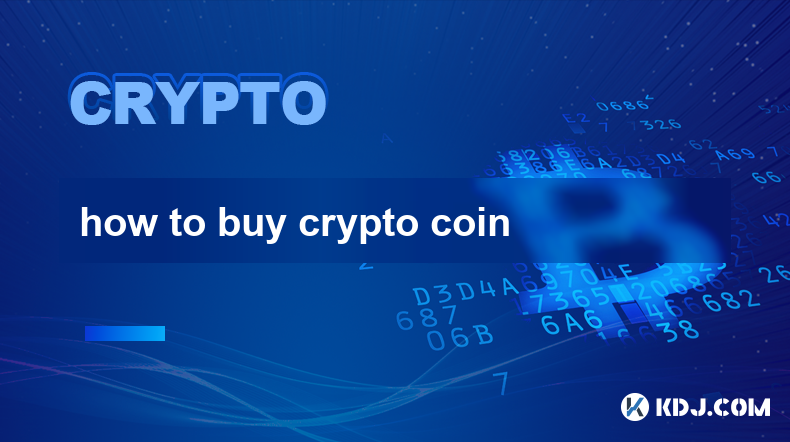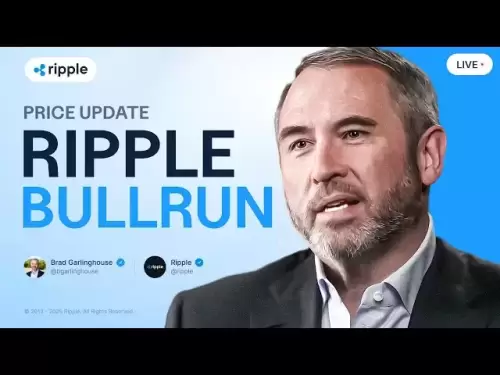-
 Bitcoin
Bitcoin $105,660.2309
1.97% -
 Ethereum
Ethereum $2,552.7306
6.93% -
 Tether USDt
Tether USDt $0.9997
-0.04% -
 XRP
XRP $2.3798
1.13% -
 BNB
BNB $650.3328
1.80% -
 Solana
Solana $168.8054
2.04% -
 USDC
USDC $0.9996
-0.01% -
 Dogecoin
Dogecoin $0.2251
2.44% -
 Cardano
Cardano $0.7419
1.85% -
 TRON
TRON $0.2671
1.61% -
 Sui
Sui $3.8365
1.98% -
 Chainlink
Chainlink $16.0850
6.13% -
 Avalanche
Avalanche $22.3524
1.99% -
 Stellar
Stellar $0.2865
1.54% -
 Hyperliquid
Hyperliquid $26.6074
2.66% -
 Shiba Inu
Shiba Inu $0.0...01463
1.94% -
 Hedera
Hedera $0.1953
2.94% -
 UNUS SED LEO
UNUS SED LEO $8.7047
0.59% -
 Bitcoin Cash
Bitcoin Cash $394.8262
0.57% -
 Toncoin
Toncoin $3.0384
-0.37% -
 Litecoin
Litecoin $98.1332
0.92% -
 Polkadot
Polkadot $4.6385
1.93% -
 Monero
Monero $347.1478
1.61% -
 Bitget Token
Bitget Token $5.1577
0.68% -
 Pepe
Pepe $0.0...01330
2.85% -
 Dai
Dai $0.9998
0.00% -
 Pi
Pi $0.7325
0.06% -
 Ethena USDe
Ethena USDe $1.0003
-0.01% -
 Aave
Aave $264.9425
21.69% -
 Uniswap
Uniswap $5.9747
3.73%
how to buy crypto coin
To purchase crypto, users must select a reputable exchange based on various factors, including trading fees, security measures, supported cryptocurrencies, user-friendliness, and customer support.
Jan 31, 2025 at 07:24 am

Key Points:
- Selecting a Cryptocurrency Exchange: Research and compare different exchanges based on fees, security, supported cryptocurrencies, and reputation.
- Creating an Account and KYC Verification: Sign up with the chosen exchange, complete the Know Your Customer (KYC) verification process, and provide personal information for security purposes.
- Funding Your Account: Choose a funding method supported by the exchange, such as bank transfer, credit/debit card, or third-party payment services like PayPal.
- Placing an Order: Select the desired cryptocurrency, specify the amount to buy, and choose the order type (market order or limit order).
- Storing Your Crypto: Determine the appropriate storage solution for your crypto assets, such as hardware wallets, software wallets, or exchange accounts.
How to Buy a Crypto Coin
1. Selecting a Cryptocurrency Exchange
Compare exchange platforms based on various factors:
- Trading fees and spreads
- Security measures and reputation
- Variety of supported cryptocurrencies
- User interface and ease of use
- Customer support quality
2. Creating an Account and KYC Verification
- Sign up on the selected exchange by providing an email address and creating a password.
- Complete the KYC verification process by submitting personal information, such as ID proof and proof of address.
3. Funding Your Account
Choose a funding method compatible with the exchange:
- Bank transfer (typically takes 1-3 business days)
- Credit/debit card (immediate but may incur higher fees)
- Third-party payment services like PayPal (convenient but often limited by daily/monthly transaction limits)
4. Placing an Order
- Select the desired cryptocurrency to purchase.
- Specify the amount to be bought in the corresponding field.
Choose the order type:
- Market order: Executes at the current market price.
- Limit order: Executes only when the market price reaches your specified limit.
5. Storing Your Crypto
Determine the most suitable storage option for your cryptocurrency:
- Hardware wallets: Physical devices that store your private keys securely offline.
- Software wallets: Digital wallets that store your keys on a mobile or desktop device.
- Exchange accounts: Convenient for storing small amounts of crypto but less secure compared to hardware wallets.
FAQs
Q: Which cryptocurrency exchange is the best?
A: The "best" exchange depends on your specific needs and preferences. Consider factors such as fees, security, supported currencies, user-friendliness, and customer support.
Q: Is it safe to buy crypto coins from any website or platform?
A: No. It is crucial to only use reputable exchanges that adhere to industry standards and implement strong security measures.
Q: Do I need to verify my identity to purchase crypto?
A: Most regulated exchanges require KYC verification to comply with anti-money laundering and terrorism financing regulations.
Q: What are the fees involved in buying crypto?
A: Exchanges typically charge trading fees (which can vary depending on the exchange and transaction size), withdrawal fees, and spread (the difference between the buy and sell price).
Q: How do I withdraw my crypto from an exchange?
A: Once purchased, crypto coins can be withdrawn from the exchange to your chosen storage solution by initiating a withdrawal request.
Disclaimer:info@kdj.com
The information provided is not trading advice. kdj.com does not assume any responsibility for any investments made based on the information provided in this article. Cryptocurrencies are highly volatile and it is highly recommended that you invest with caution after thorough research!
If you believe that the content used on this website infringes your copyright, please contact us immediately (info@kdj.com) and we will delete it promptly.
- Bitcoin Mayer Multiple Z-Score Is Still Under Its Mean
- 2025-05-20 12:35:13
- GENIUS Act Enters Formal Review Stage After U.S. Senate Passes Procedural Motion
- 2025-05-20 12:35:13
- Bitcoin price today on May 20, 2025 is trading at USD 1,05,163.45 at 3:11 AM IST.
- 2025-05-20 12:30:12
- BlackRock's spot Bitcoin ETF achieved nearly $3 billion in trading volume on a single day
- 2025-05-20 12:30:12
- URSWAP: The All-in-One DeFi Toolkit
- 2025-05-20 12:25:12
- The XRP price remains in a consolidation phase despite the latest launch of CME XRP futures
- 2025-05-20 12:25:12
Related knowledge

What is Ethereum’s Slashing mechanism and how to punish malicious behavior?
Feb 20,2025 at 03:08am
Key PointsOverview of slashingDifferent types of slashing in EthereumIncentives and consequences of slashingIdentifying and reporting slashed validatorsOngoing discussions and potential improvementsEthereum's Slashing Mechanism: Punishing Malicious BehaviorEthereum's slashing mechanism is an essential tool for ensuring network security and punishing mal...

What is the verifier node of Ethereum and how to become a verifier?
Feb 19,2025 at 06:00pm
The Verifier Node of Ethereum: A Comprehensive GuideKey Points:What is a Verifier Node?How to Become a Verifier NodeResponsibilities and Rewards of a Verifier NodeMinimum Requirements for Becoming a Verifier NodePotential Difficulties in Running a Verifier Node1. What is a Verifier Node?A Verifier Node is an independent entity on the Ethereum network th...

What is Ethereum’s staking, and how to participate and earn money?
Feb 19,2025 at 04:37pm
Key Points:Understanding Ethereum's Staking MechanismSteps to Participate in StakingBenefits and Rewards of StakingSecurity and Risk ConsiderationsTechnical Requirements and Hardware OptionsPotential Challenges and Troubleshooting TipsFAQs on Ethereum StakingWhat is Ethereum's Staking?Proof-of-Stake (PoS) is a consensus mechanism used in blockchain netw...

What is Ethereum’s DAO (Decentralized Autonomous Organization) and how does it work?
Feb 20,2025 at 03:12am
Key PointsDefinition and Structure of a DAOGovernance and Decision-Making in DAOsBenefits and Use Cases of DAOsChallenges and Limitations of DAOsWhat is Ethereum's DAO (Decentralized Autonomous Organization) and How Does It Work?Definition and Structure of a DAOA Decentralized Autonomous Organization (DAO) is an innovative governance and management fram...

What is Ethereum's multi-signature wallet and how to improve security?
Feb 20,2025 at 02:18pm
Key Points:Understanding the Concept of a Multi-Signature WalletBenefits and Drawbacks of Multisig WalletsRequirements for Setting Up a Multisig WalletStep-by-Step Guide to Generating a Multisig WalletImplementing Strategies for Enhanced Security1. Understanding the Concept of a Multi-Signature WalletA multi-signature (multisig) wallet in the Ethereum e...

What is Ethereum's oracle and how to provide data for smart contracts?
Feb 21,2025 at 01:30am
Key Points:Understanding the concept of oracles in EthereumExploring different types of oraclesDetailed guide on how to provide data for smart contractsAddressing potential challenges and considerationsWhat is Ethereum's Oracle?Oracles are crucial components in the Ethereum ecosystem, enabling smart contracts to access real-world data and off-chain even...

What is Ethereum’s Slashing mechanism and how to punish malicious behavior?
Feb 20,2025 at 03:08am
Key PointsOverview of slashingDifferent types of slashing in EthereumIncentives and consequences of slashingIdentifying and reporting slashed validatorsOngoing discussions and potential improvementsEthereum's Slashing Mechanism: Punishing Malicious BehaviorEthereum's slashing mechanism is an essential tool for ensuring network security and punishing mal...

What is the verifier node of Ethereum and how to become a verifier?
Feb 19,2025 at 06:00pm
The Verifier Node of Ethereum: A Comprehensive GuideKey Points:What is a Verifier Node?How to Become a Verifier NodeResponsibilities and Rewards of a Verifier NodeMinimum Requirements for Becoming a Verifier NodePotential Difficulties in Running a Verifier Node1. What is a Verifier Node?A Verifier Node is an independent entity on the Ethereum network th...

What is Ethereum’s staking, and how to participate and earn money?
Feb 19,2025 at 04:37pm
Key Points:Understanding Ethereum's Staking MechanismSteps to Participate in StakingBenefits and Rewards of StakingSecurity and Risk ConsiderationsTechnical Requirements and Hardware OptionsPotential Challenges and Troubleshooting TipsFAQs on Ethereum StakingWhat is Ethereum's Staking?Proof-of-Stake (PoS) is a consensus mechanism used in blockchain netw...

What is Ethereum’s DAO (Decentralized Autonomous Organization) and how does it work?
Feb 20,2025 at 03:12am
Key PointsDefinition and Structure of a DAOGovernance and Decision-Making in DAOsBenefits and Use Cases of DAOsChallenges and Limitations of DAOsWhat is Ethereum's DAO (Decentralized Autonomous Organization) and How Does It Work?Definition and Structure of a DAOA Decentralized Autonomous Organization (DAO) is an innovative governance and management fram...

What is Ethereum's multi-signature wallet and how to improve security?
Feb 20,2025 at 02:18pm
Key Points:Understanding the Concept of a Multi-Signature WalletBenefits and Drawbacks of Multisig WalletsRequirements for Setting Up a Multisig WalletStep-by-Step Guide to Generating a Multisig WalletImplementing Strategies for Enhanced Security1. Understanding the Concept of a Multi-Signature WalletA multi-signature (multisig) wallet in the Ethereum e...

What is Ethereum's oracle and how to provide data for smart contracts?
Feb 21,2025 at 01:30am
Key Points:Understanding the concept of oracles in EthereumExploring different types of oraclesDetailed guide on how to provide data for smart contractsAddressing potential challenges and considerationsWhat is Ethereum's Oracle?Oracles are crucial components in the Ethereum ecosystem, enabling smart contracts to access real-world data and off-chain even...
See all articles
























































































